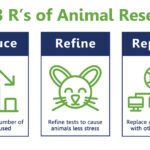The absence of legislation to protect animals in China has become a poignant issue that incites debate among activists, scholars, and the general populace. As the world’s most populous nation undergoes rapid modernization and social transformation, the question remains: why doesn’t China have comprehensive laws against animal abuse? To unpack this silence, one must examine various dimensions including cultural perspectives, socio-political structures, animal welfare movements, and the economic implications involved.
At the heart of the matter lies a complex tapestry of cultural heritage intertwined with contemporary attitudes towards animals. Historically, Chinese civilization has demonstrated a pragmatic relationship with animals, which is often reflected in traditional practices and philosophical teachings. While Confucianism and Daoism advocate for respect towards living beings, this ethos has not translated into formal legal frameworks protecting animals from mistreatment. Instead, animals are frequently perceived through a utilitarian lens—as sources of food, labor, or income. This utilitarian view largely contributes to a lack of urgency among policymakers to establish stringent animal welfare laws.
Moreover, there exists a pervasive social silence around animal cruelty, which manifests in various ways. Many citizens may not view instances of animal abuse as a significant societal issue, often relegated such acts to the realm of personal morality rather than public responsibility. This societal apathy can be attributed to limited awareness about animal rights, further compounded by insufficient media coverage of such incidents. Consequently, the cultural norms that prioritize human interests over animal welfare persist without challenge.
Another critical aspect to consider is the socio-political environment of China. The Chinese political landscape is characterized by a centralized authority that often prioritizes economic growth and social stability above ethical concerns regarding animals. In this context, laws are frequently oriented around more pressing issues such as human rights and environmental degradation. Animal welfare, often perceived as a trivial concern in comparison, does not receive adequate attention within legislative agendas. Political capital is largely diverted toward economic development, leaving the plight of animals relegated to the background.
The burgeoning animal rights movement in China, albeit maturing, faces formidable challenges. Grassroots organizations and activists strive to raise awareness and advocate for legislative reforms. They engage in protests, educational campaigns, and social media outreach to illuminate the realities of animal cruelty. However, these efforts encounter significant obstacles, primarily due to a lack of legal protection for activists themselves. Tactics employed by the government, such as censorship and harassment, stifle societal discourse around animal rights, creating a chilling effect that discourages broader public engagement and advocacy.
Furthermore, economic motivations play a pivotal role in the reluctance to implement animal welfare laws. The livestock industry is a behemoth in China, significantly contributing to the economy and employment. It flourishes due, in part, to both domestic consumption and international trade. Consequently, regulatory changes that impose stringent welfare standards may be viewed by policymakers as threats to economic stability and growth. This creates a paradox where the exploitation of animal life is rationalized under the guise of economic necessity, further entrenching the absence of protective legislation.
International pressures, however, have begun to make a dent in the status quo. As global awareness of animal welfare amplifies, there has been an uptick in scrutiny regarding China’s treatment of animals, particularly evident during high-profile events such as the annual Yulin dog meat festival. Activists both within and outside China have initiated campaigns that elevate awareness and call for reforms. The opposition faced in these endeavors reflects the broader battle against ingrained cultural practices and market forces that prioritize profit over compassion.
In light of these considerations, it is evident that multiple intersecting factors contribute to the lack of animal abuse laws in China. The potent combination of cultural norms, socio-political frameworks, economic imperatives, and a nascent yet beleaguered animal advocacy movement creates a formidable barrier to reform. However, the rise of awareness and dialogue around this issue suggests that change, albeit slow, is possible. The fostering of empathetic connections between humans and animals, alongside education on the intrinsic values of animal welfare, may ignite a transformation in societal attitudes. Moreover, as global trends shift towards sustainability and ethical consumption, there exists potential for China to reconsider its stance on animal rights.
In conclusion, the silence surrounding animal abuse laws in China does not stem from a lack of compassion among its citizens but is instead a reflection of a multifaceted socio-cultural and political milieu. For meaningful progress to ensue, continual advocacy, education, and international collaboration will be essential. Only through a comprehensive understanding of the complexities at play can the tide be turned towards a future where animals are afforded dignity, respect, and protection under the law.






